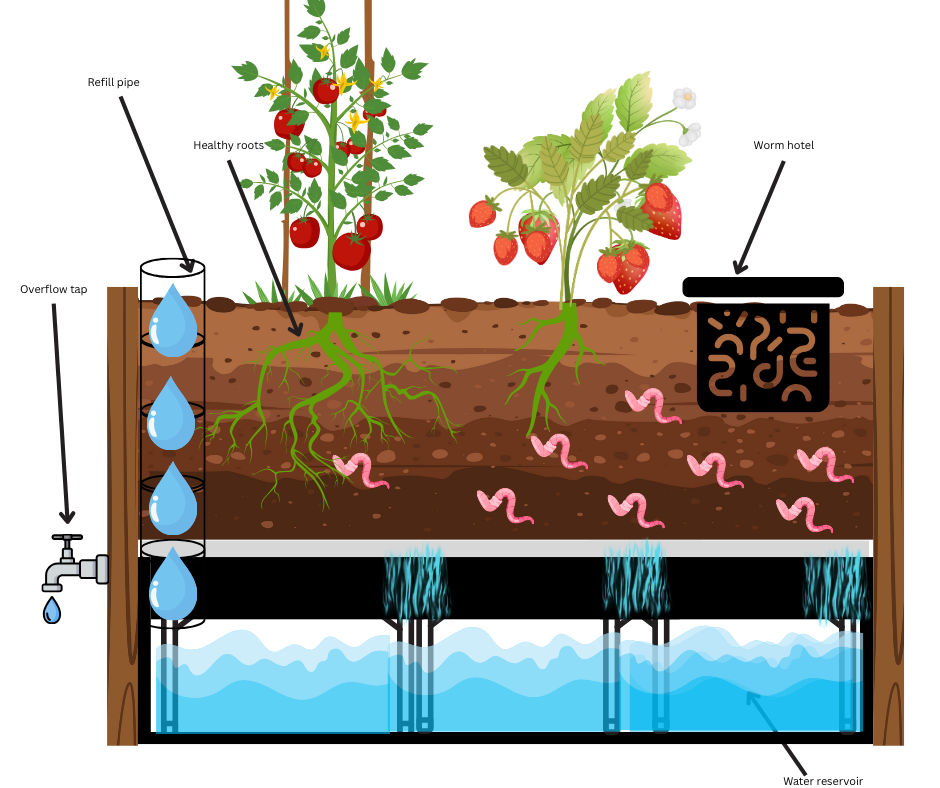The Superiority of Cypress Pine: Unveiling its Benefits for Wicking Beds
- Andrew Milne
- Aug 4, 2025
- 3 min read
As gardening evolves, wicking beds have emerged as a revolutionary method for growing plants. This technique conserves water while promoting robust plant growth. But the choice of timber for building wicking beds is just as important as the method itself. In this post, we’ll explain why cypress pine is an outstanding choice for wicking beds and how its unique properties can lead to a flourishing garden.
Understanding Wicking Beds
Wicking beds offer a smart way to deliver water to plants. They include a reservoir at the bottom, using capillary action to draw moisture up into the soil. This setup is particularly useful in regions where water is scarce or for gardeners who want to minimize how often they water.
When building a wicking bed, it is crucial to choose materials that ensure both durability and effectiveness.
The Advantages of Cypress Pine
Cypress pine is an exceptional option for wicking beds, boasting several key benefits.
Natural Resistance to Decay
Cypress pine’s standout feature is its natural resistance to decay and insects. Thanks to the oils it contains, this wood is less attractive to pests, making it resilient to the elements.
For example, studies show that untreated cypress can last up to 30 years compared to other woods that may only last 5-10 years under similar conditions. This longevity means you’ll spend less on replacements and maintenance over the years.
Sustainability Factor
Cypress trees are widely considered a sustainable timber source. They thrive in various environments and can be harvested with minimal impact on ecosystems. By selecting cypress pine, you support sustainable gardening practices.
In fact, sustainable forestry practices for cypress can lead to 20% fewer emissions than less responsibly sourced woods, contributing to a healthier planet.
Thermal Insulation Properties
Cypress pine excels at maintaining optimal soil temperatures in wicking beds. Its insulating qualities help to keep soil warm during colder months and cool during summer heat.
This temperature stability can significantly enhance plant growth, as stable conditions lead to better yields. Research indicates that plants grown in medium with effective thermal regulation can produce up to 25% more fruit or vegetables.

Aesthetic Appeal - Cypress Pine Wicking Beds
Cypress pine is not only functional but also visually striking. Its warm hues can enhance the beauty of your garden. Whether you're going for a rustic look or a modern design, cypress pine can be a focal point.
Incorporating aesthetically pleasing materials turns a practical raised bed into an attractive garden feature that you can proudly showcase.
Low Maintenance
Cypress pine requires very little upkeep compared to other wood types. While some timbers need frequent treatments to prevent decay, cypress allows you to spend more time gardening and less maintaining structures.
This low-maintenance aspect is especially beneficial for newer gardeners, enabling them to enjoy the fruits of their labor without overwhelming responsibilities.
Installation Benefits
When constructing wicking beds, cypress pine is not just durable but also user-friendly. It can be easily cut and shaped to meet various design requirements, making it ideal for DIY projects.
Versatile Sizing
Cypress pine is available in numerous sizes and dimensions. This flexibility allows you to tailor your wicking beds to your space and design preferences. You can create anything from a traditional rectangular layout to more unique shapes, enabling creativity in your garden.
Alignment with Gardening Practices
If you practice organic gardening, cypress pine aligns perfectly with your philosophy. Its minimal treatment and natural resistance mean you can grow organic produce without harmful chemicals leaching into your soil. It's a win-win for your plants and the environment.
Final Thoughts
Cypress pine wicking beds solve the quest for the best timber for wicking beds, cypress pine stands out for its numerous advantages. Its longevity, resistance to pests and decay, aesthetic appeal, and low maintenance make it an ideal choice for maximizing your gardening success.
By choosing cypress pine, you not only enhance the efficiency of your wicking beds but also support responsible forestry practices, contributing to a sustainable gardening approach.
Ultimately, selecting the right timber can greatly impact your gardening journey. With cypress pine, you can look forward to a flourishing garden that thrives for years to come.

_edited.jpg)





Comments